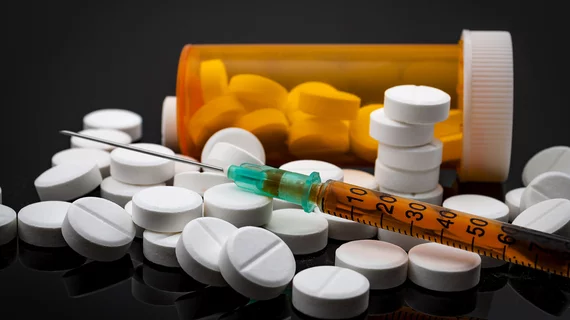Feedback on opioid prescribing data improves clinicians' self-perceptions
Providing emergency department (ED) clinicians with feedback on their opioid prescribing led to a significant decrease in future prescriptions, according to a study published April 2 in Academic Emergency Medicine.
Led by Sean S. Michael, MD, assistant professor of emergency medicine at the University of Colorado Denver School of Medicine, researchers examined prescription practices among clinicians to identify if providing individualized feedback could change behavior.
The study enrolled 51 physicians, residents and advanced practice providers, who were asked to self-identify and report their perceived opioid prescribing. These answers were then compared to their peers.
Researchers found 65 percent underestimated their opioid prescribing. Additionally, clinicians who underestimated such rates prescribed fewer opioids than clinicians who did saw themselves within normal ranges.
“Self‐perception of prescribing was frequently inaccurate,” concluded Michael and colleagues. “Providing clinicians with their actual opioid prescribing data after querying their self‐perception reduced future prescribing among providers who underestimated their baseline prescribing. Our findings suggest that guideline and policy interventions should directly address the potential barrier of inaccurate provider self‐awareness.”

